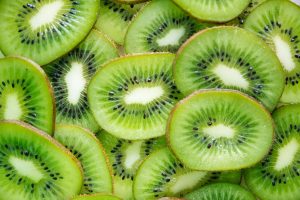
Dietitian case Study: Graham came for a Dietitian assessment as he was experiencing constipation (hard, dry stools) and his doctor suggested he get his diet reviewed to help improve bowel health. Graham was aged in his seventies, was diagnosed with Parkinson’s in 2011 and was living on his own.
During assessment, the following information was obtained:
Current weight: 79 kg (174 pounds)
Estimated healthy weight range: 65-81 kg (143-179 pounds)
Graham reported the following:
- Stable body weight.
- Appetite good.
- Nil nausea reported.
- 1-2 bowel motions per week. Hard, dry stools reported as well as straining.
- No chewing or swallowing issues.
- Nil food and levodopa-containing medication interactions noted.
- Estimated total fibre intake 24 grams per day.
- Estimated total fluid intake 1.1 litres per day.
- Minimal exercise reported.
Issues:
- Constipation with straining.
- Inadequate fibre and fluid intake.
Dietitian notes:
Constipation is a common non-motor symptom of Parkinson’s for several reasons:
- Parkinson’s can affect muscles of the bowel causing slowness and rigidity.
- Parkinson’s medications have the potential to cause constipation or make it worse.
- Poor diet and decreased levels of exercise can affect bowel activity.
Constipation can impact the absorption and effectiveness of levodopa-containing medications.
For healthy bowel function a diet containing an adequate amount of fibre and fluid is recommended. Water is the best type of fluid to drink.
Fibre is important to add bulk to stools and speed up transit time. Water increases flow through the digestive tract, allowing the system to function more effectively. Fibre and fluid work together to keep bowels regular. Without enough fluid, increasing fibre may result in constipation. It is also important to increase fibre intake gradually.
Healthy diet and bowels from the Continence Foundation of Australia is a great resource to help you consume an adequate amount of fibre and fluid.
Dietitian case study – Treatment goals:
- Assist to normalise bowel function.
- Ensure an adequate amount of fibre and fluid is consumed:
- Graham should aim to eat about 30 grams of fibre each day.
- Graham should aim to drink about 1.5-2.0 litres of fluid per day (6-8 glasses).
Suggestions made following assessment:
- Graham was encouraged to drink about 1.5-2.0 litres of fluid per day. Following discussion, Graham was happy with the following:
- Drinking an additional 1-2 glasses of water each day. Graham was encouraged to drink more water each time he had his medications.
- Drinking 1 Chamomile tea each day at afternoon-tea.
- Graham was encouraged to eat an additional 6 grams of fibre per day. He was instructed to increase fibre intake gradually. Following discussion, Graham was happy with the following:
- Adding 1 teaspoon of psyllium to breakfast cereal – 3 grams of fibre.
- Eating a medium kiwifruit each day – 3 grams of fibre.
- Ongoing Dietitian review sessions.
- Make an appointment with a Physiotherapist to guide an appropriate exercise regime. Exercise is another key element of constipation management.
- Make an appointment with his doctor to further assist treatment of constipation – use of stool softeners or laxatives may be necessary.
- Liaise with Grahams doctor re: above plan.